Search the Special Collections and Archives Portal
Search Results
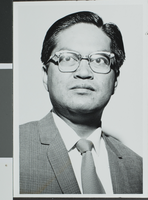
Photograph of Dr. Alfredo B. Villanueva, University of Nevada, Las Vegas, 1969
Date
Archival Collection
Description
A portrait of Dr Alfredo B. Villanueva, Associate Professor of Political Science, at the University of Nevada, Las Vegas.
Image
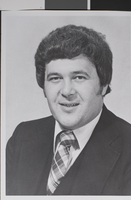
Photograph of Charles (Chuck) Lee, University of Nevada, Las Vegas, circa 1978
Date
Archival Collection
Description
A portrait of Charles (Chuck) Lee, the band director at the University of Nevada, Las Vegas.
Image
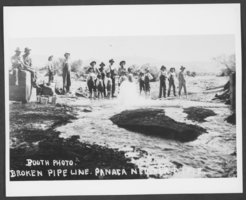
Photograph of broken pipeline, Panaca, Nevada, September 4, 1918
Date
Archival Collection
Description
Image
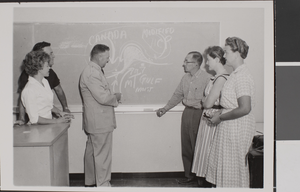
Photograph of a group of individuals, Nevada, circa mid 1900s
Date
Archival Collection
Description
Image
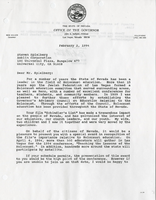
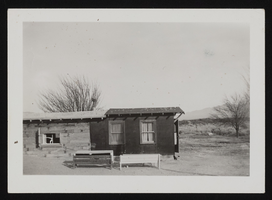
Various scenes from around the Pahrump School: photographic prints
Date
Archival Collection
Description
Image
Series I. Writings, 1937-1953
Level of Description
Scope and Contents
The Writing Series contains all of Hazel Denton's written work, both published and manuscript (drafts for a book and college papers for example), and demonstrates her growth as a writer and the relative position of professional women in society during the time she was writing.
Denton's columns appeared in several Lincoln County newspapers from approximately 1937 to 1953. Most of this work is in the society columns "Caliente All the Time" and "While the Toast Burns." She also wrote "The Tidewater Sketches," a column that tells of her summer in Washington, D.C. attending Wilson Teachers College. Denton's book Ironing Day is included in this series along with correspondence from the publisher and handwritten drafts of the book.
Archival Collection
Collection Name: Hazel Baker Denton Papers
Box/Folder: N/A
Archival Component
Brittney Erickson oral history interview
Identifier
Abstract
Oral history interview with Brittney Erickson conducted by Claytee D. White on August 14, 2015 for the Building a Las Vegas Tech Culture oral history project. In this interview, Erickson talks about growing up in Henderson in a household that pursued the family-owned business, her education and work as a teacher, and "The Spirit Project", a web-based software tool that links government agencies to people with social challenges.
Archival Collection
Karen Grant oral history interview
Identifier
Abstract
Oral history interview with Karen Grant conducted by Leslie Brinks on November 29, 2003 for the Public School Principalship Oral History Project. In this interview, Grant reflects upon her experience as a teacher and school administrator in the Pacific Northwest. She discusses challenges with changing curricula and school safety, and provides her opinion on changing student values and contemporary trends within public schools.
Archival Collection

Transcript of interview with Dr. James Deacon by Mary K. Keiser, August 24, 2006
Date
Archival Collection
Description
Text
